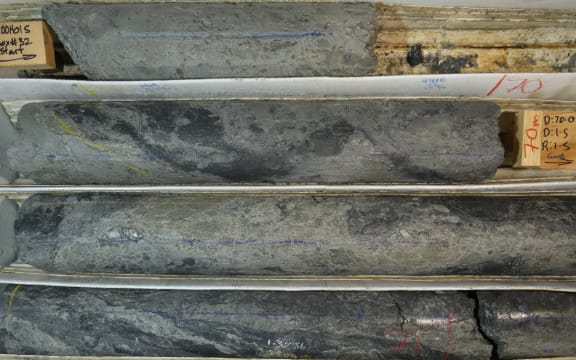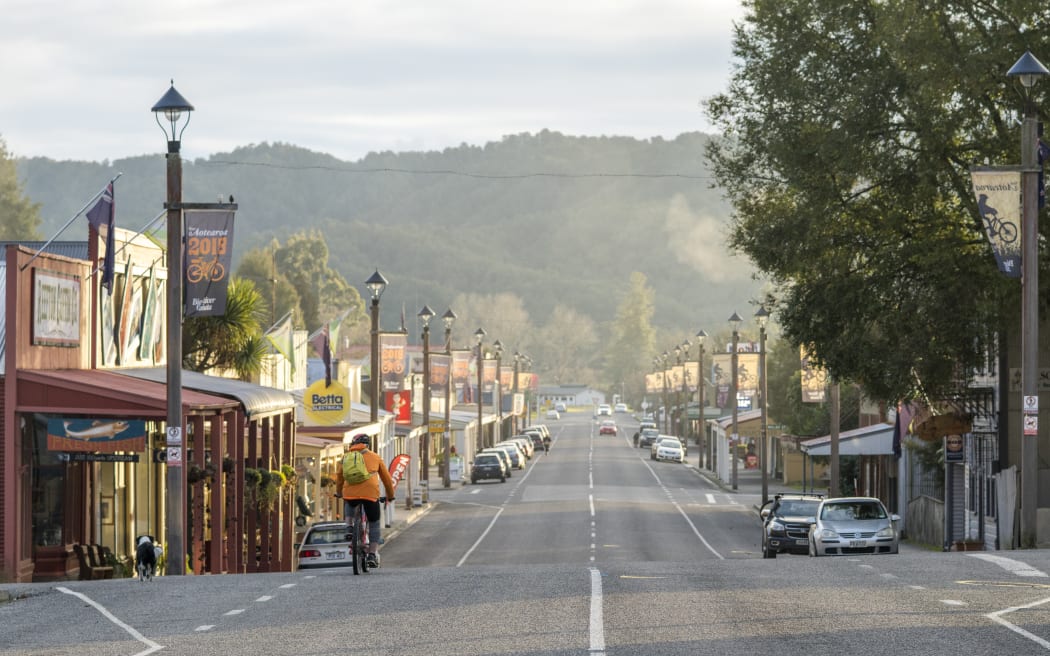Reefton could hold 5 percent of world’s supply of antimony

A small West Coast town is sitting on a significant supply of a valuable mineral used in everything from mobile phones to solar panels and electric vehicles.
An Australian mining company predicts that the Reefton area, on the West Coast, could have up to 5 percent of the world’s supply of antimony.
Reefton’s supply could be a big boost for the region’s economy and beyond, according to a local resident.
Dress Smart co-founder John Bougen moved to the small town in 2015, and fell in love with it.
The Reefton area had a proud history of gold and coal mining, but in the past antimony had been more of an annoyance than a prize, he said.
“It was kind of in the way, and kept on getting in the middle of it. But now it would seem we’ve got an element du jour, that’s gone in favour from zero to hero almost overnight – and all thanks to renewable energy.”
Bougen was now a proud Reefton resident, and had invested some of his considerable capital in the town.
Once mining for antimony got underway – combined with the resurgence of gold mining – it would be great for the region, he said.
“We’re going to have three underground mining operations going hell for leather, and doing it all out of sight and in an environmentally friendly way – it couldn’t be better.”

Antimony was used as a flame retardant in electronics including iPhones, lithium batteries in electric vehicles and circuit boards.
It was also used in the military for lead bullets and armour.
The EU, US, China and Australia all recognised it as a critical mineral.
Australian mining company Siren Gold was in the exploration phase of mining antimony and gold in Reefton, and was hoping to be processing antimony within five years.
Siren Gold managing director Victor Rajasooriar said the Reefton area could have up to 5 percent of the world’s supply of the mineral, most of which was produced in Russia and China.
“[The Reefton source] could end up being 25 percent of what the Western countries are producing, from one place in New Zealand. So it’s actually a significant amount.”
This could be important for Western countries if they wished to reduce their reliance on Russia and China, he said.
Rajasooriar reckoned the value of antimony would continue to rise.
“The talk on the market is that [it] could actually double or even quadruple in the next two, three years. So, you sit there and you understand it’s a critical mineral, and if New Zealand gets there, it’s going to be a freaking big contributor.”
The mine would directly employ about 250 people in the Reefton area, and the antimony alone would generate between $150 million and $200 million per year in revenue, he said.
The coalition government’s pro-mining approach had helped their operation by reducing red tape, Rajasooriar said.
“They’ve fast-tracked a few of the projects for us. We are ethical operators, we’ve run mines before, we do everything right.”

Environmental impact of antimony mining
University of Otago emeritus professor of economic geology Dave Craw said there were concerns about the possible impacts of antimony mining on water quality, and the Regional Council and Siren Gold would need to agree on an acceptable level of those impacts before mining could happen.
“The regional council will set rules for how much antimony can be in the water, and how much cloudiness you can have in the water, and they have to abide by that.”
Another environmental concern was the tailings dam – a collection of all the waste byproducts of the mining – which might take years to treat after the mine closed.
The tailings dam for the Globe Progress Mine in Reefton was still being treated, after closing in 2016, Craw said.
There would also be strict health and safety rules for workers during the mining process, as antimony was highly toxic, he said.
Buller District Mayor Jamie Cleine said the mining project would be a boost to Reefton’s economy, and the wider West Coast region.
“A large-scale mining operation right on the door-step obviously brings all the benefits to people in town and the economic development and things that come with that. But for the whole region, a lot of the heavy industry that would support a mine like that is down in the Grey district.”
Reefton was a real gem, Cleine said, a town that had managed to develop while keeping its heritage intact.
According to the news on Radio New Zealand



